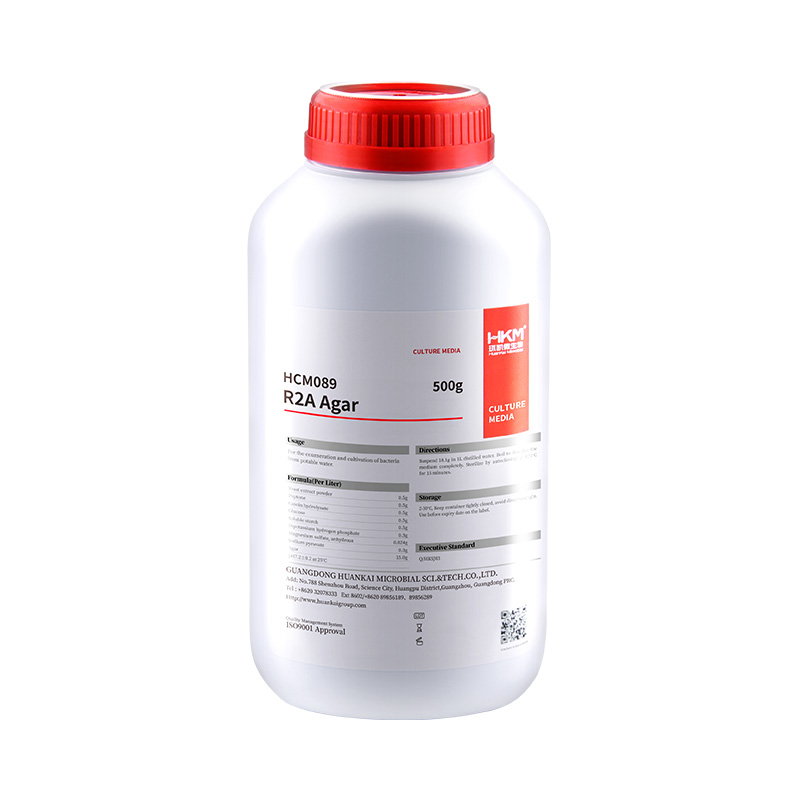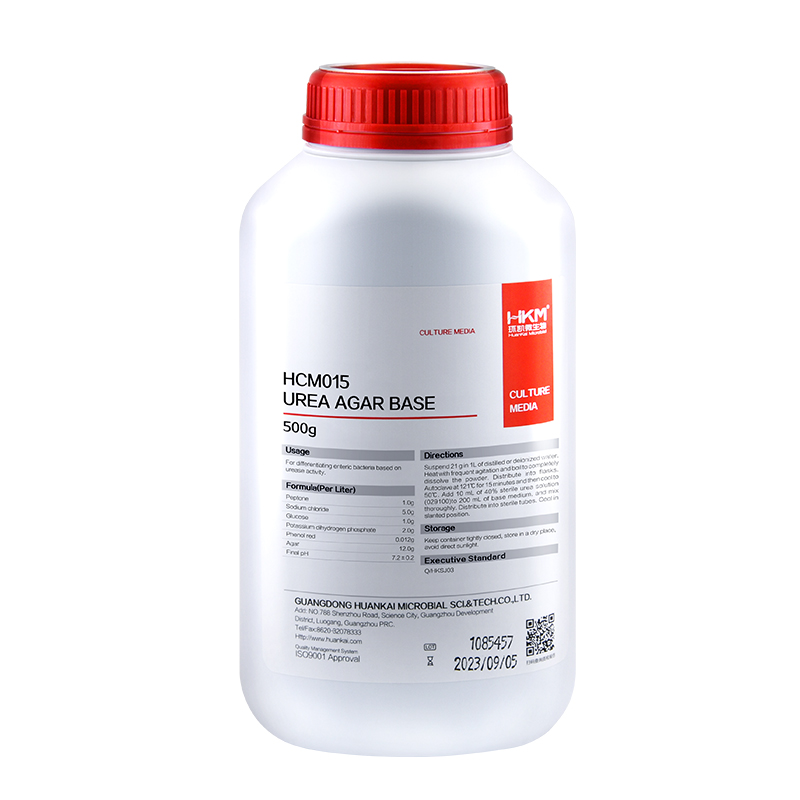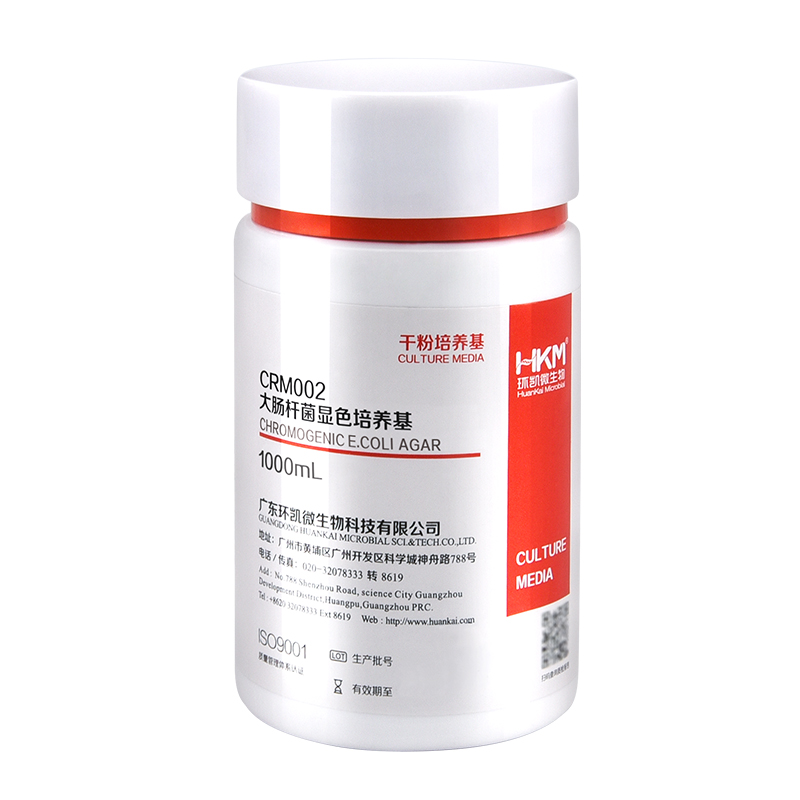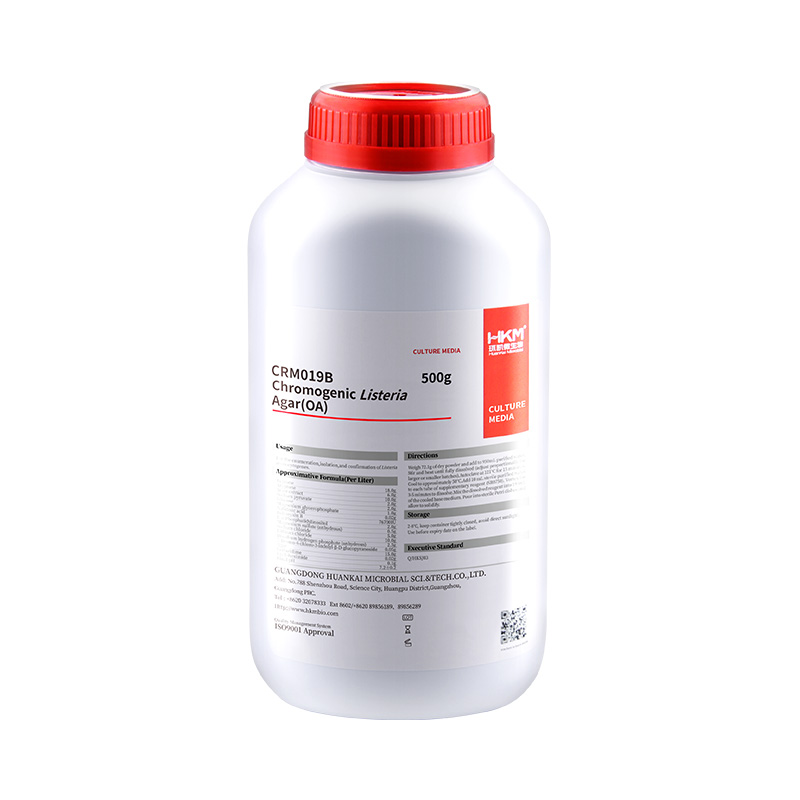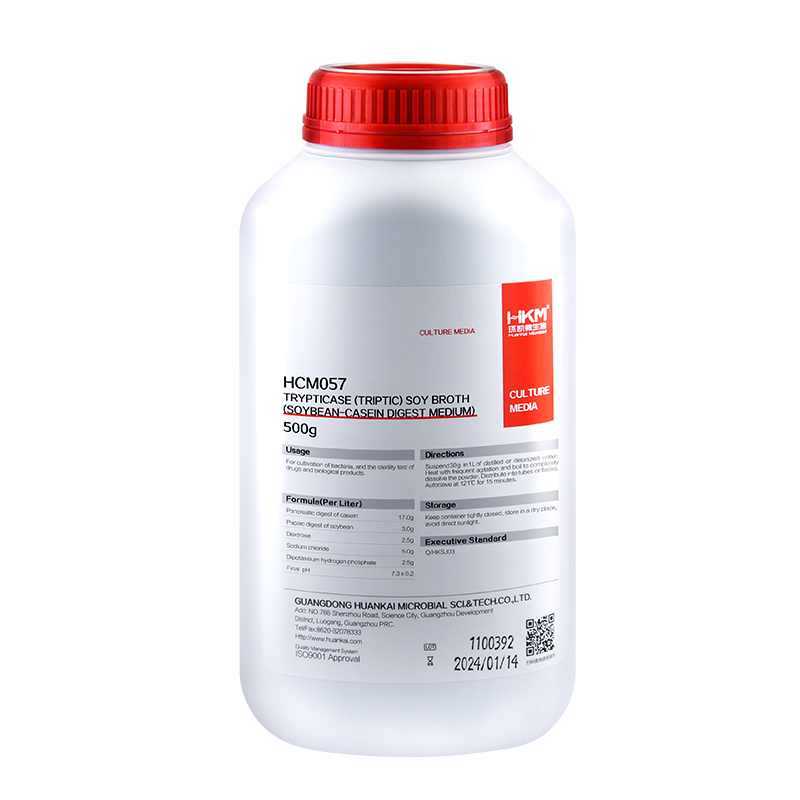HCM089 R2A Agar
$39-46
Product No.Product CategorySpecificationHCM089Dehydrated Culture Medium500g/bottle022029Dehydrated Culture Medium250g/bottle Intended Use For the enumeration and cultivation of bacteria from ……
Introduction
| Product No. | Product Category | Specification |
| HCM089 | Dehydrated Culture Medium | 500g/bottle |
| 022029 | Dehydrated Culture Medium | 250g/bottle |
Intended Use
For the enumeration and cultivation of bacteria from potable water.
Principle and Interpretation
Casein hydrolysate and peptone provide nitrogen, vitamins, amino acids, carbon and minerals. Yeast extract is a source of vitamins and essential trace elements. Soluble starch has a positive impact on the recovery of injured organisms due to its ability to absorb toxic metabolic by-products. Sodium pyruvate also aids with the recovery of stressed cells. Magnesium sulphate provides divalent cations and sulphate. Potassium phosphate is added to stabilize the pH and as a phosphate source. Agar acts as solidifying agent.
Formulation
| Ingredients | /liter |
| Yeast extract powder | 0.5g |
| Peptone | 0.5g |
| Casein hydrolyzate | 0.5g |
| Glucose | 0.5g |
| Soluble starch | 0.5g |
| Dipotassium hydrogen phosphate | 0.3g |
| Magnesium sulfate, anhydrous | 0.024g |
| Sodium pyruvate | 0.3g |
| Agar | 15.0g |
| pH7.2±0.2 at 25°C | |
Preparation
Suspend 18.1g in 1 litre distilled water. Boil to dissolve the medium completely. Sterilize by autoclaving at 121°C for 15 minutes..
Quality Control
The following quality control strains were inoculated and cultured at 30-35℃ for 24h. The results are as follows:
| Quality control strains | Inoculum (CFU) | Expected results |
| Pseudomonas aeruginosa ATCC9027 | 10-100 | 50-200% recovery |
| Bacillus subtilis ATCC6633 |
Storage and Shelf Life
2-30℃,Keep container tightly closed, avoid direct sunlight.
Use before expiry date on the label.
Precautions
1. When weighing the dehydrated medium, please wear masks to avoid causing respiratory system discomfort
2. Keep container tightly closed after using to prevent clumping.
Waste Disposal
Microbiological contamination was disposed by autoclaving at 121°C for 30 minutes.
